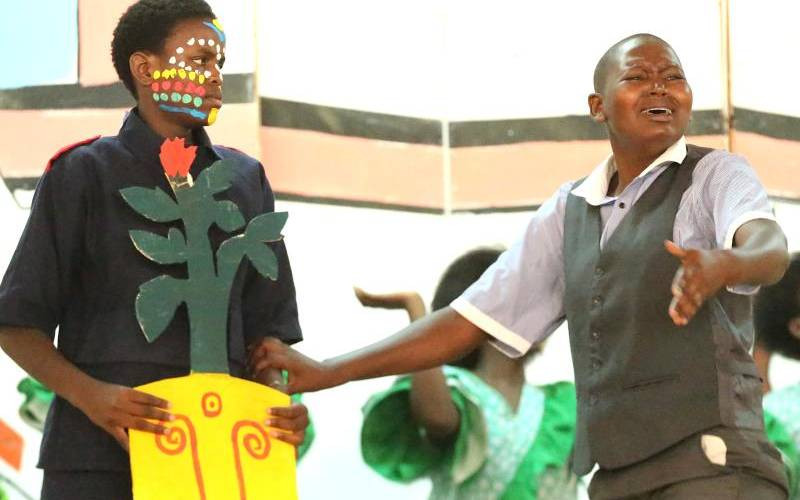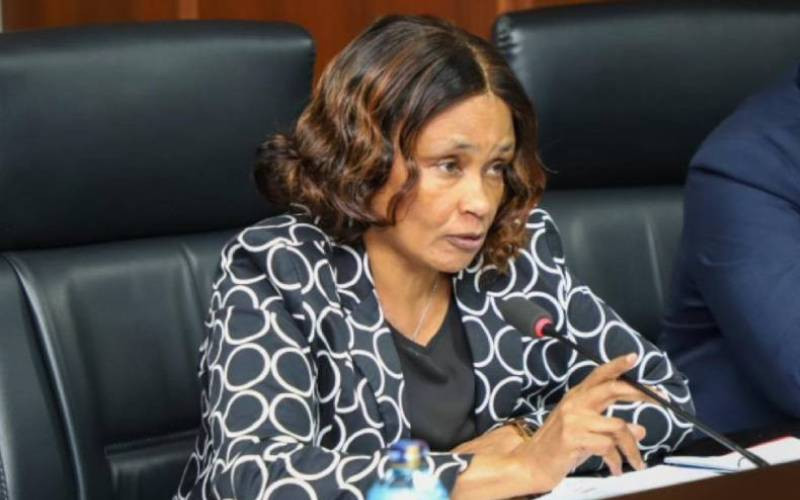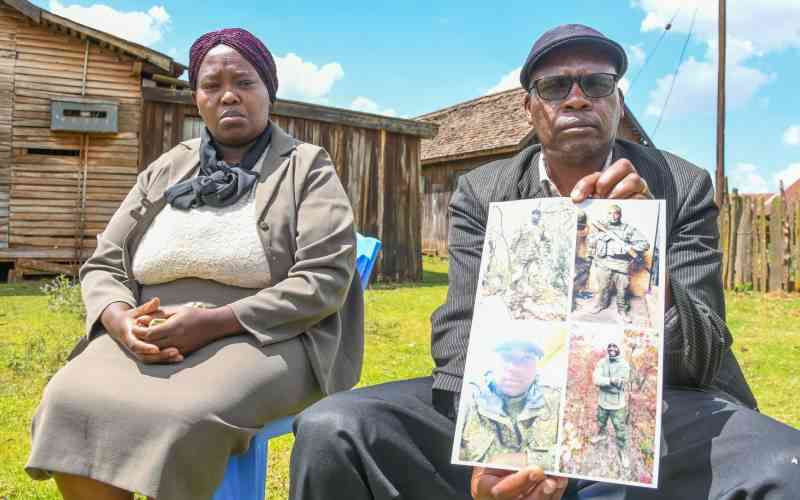St Angela School for the Hearing Impaired Mumias students performs dramatised piece on climate change during Western regional drama festivals held at Kakamega high school on March24, 2023. [Benjamin Sakwa, Standard]
×
The Standard e-Paper
Join Thousands Daily






